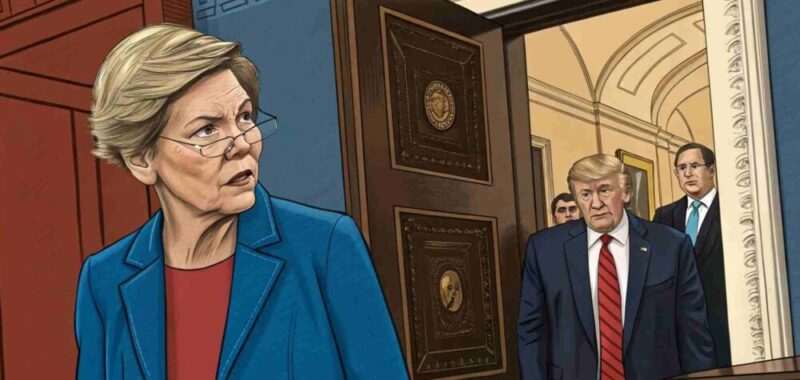- Senate Democrats have vowed to oppose the GENIUS Act in its current form.
- The lack of consensus could complicate the stablecoin bill’s path forward.
The fate of the U.S. Senate stablecoin bill has been thrown into limbo ahead of Thursday’s vote.
Democrats, led by Senators Elizabeth Warren and Reuben Gallego, have vowed not to support the bill, the GENIUS Act, if stronger anti-money laundering and other safety provisions aren’t adopted.
In fact, on the 5th of May, Warren stated that passage of the bill as it would ‘facilitate corruption,’ citing the recent $2B crypto deal between Trump-backed World Liberty Financials (WLFI) and Binance.
“The Trump family stablecoin surged to 7th largest in the world because of a shady crypto deal with the UAE. The Senate shouldn’t pass a crypto bill this week to facilitate this kind of corruption.”
According to a report by The New York Post, the deal involved the UAE gaining a minority stake in Binance, and the payment was through WLFI’s stablecoin (USD1).
Republicans’ hardline on stablecoin bill
It’s worth pointing out that Democrats and Republicans supported the GENIUS (Guiding and Establishing National Innovation for U.S. Stablecoins of 2025) Act during its introduction.
However, nine other Senate Democrats vowed to withdraw support, led by Arizona Senator Reuben Gallego. Part of the Senators’ letter read,
“The bill, as it currently stands, still has numerous issues that must be addressed, including adding stronger provisions on anti-money laundering, foreign issuers, national security, preserving the safety of our financial system…”
The statement continued,
“While we are eager to continue working with our colleagues to address these issues, we would be unable to vote for cloture should the current version of the bill come to the floor.”
The bill’s passage was anticipated to be a major milestone for the crypto industry, particularly for the rapidly expanding stablecoin sector.
Following its approval, Republican Senator Bill Hagerty, who spearheaded the legislation, urged his colleagues to support the bill. He emphasized the need for bipartisan collaboration to implement necessary changes.
“We must advance legislation that enshrines American leadership in the digital asset space and protects the US dollar for centuries to come. That time is now.”
Unsurprisingly, the crypto community slammed the Democrat-led opposition group, alleging influence from the banking sector that feels threatened by stablecoin adoption.
Paradigm’s regulatory affairs executive, Justin Slaughter, reiterated a similar stance and stated,
“It is wild to me that much of the Democratic Party has realigned with banks broadly and even the too big to fail banks, but it has happened.”
For his part, Ripple’s legal chief, Stuart Alderoty, castigated Warren’s stablecoin blockage as a ‘cheap political shot.’
Overall, dollar-pegged stablecoins have seen massive growth, led by Tether’s USDT and Circle’s USDC. The passage of the bill would enhance consumer protection and the U.S. lead in financial innovation.

